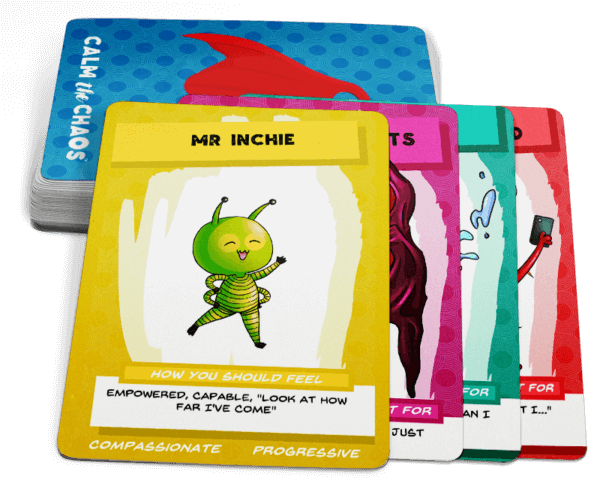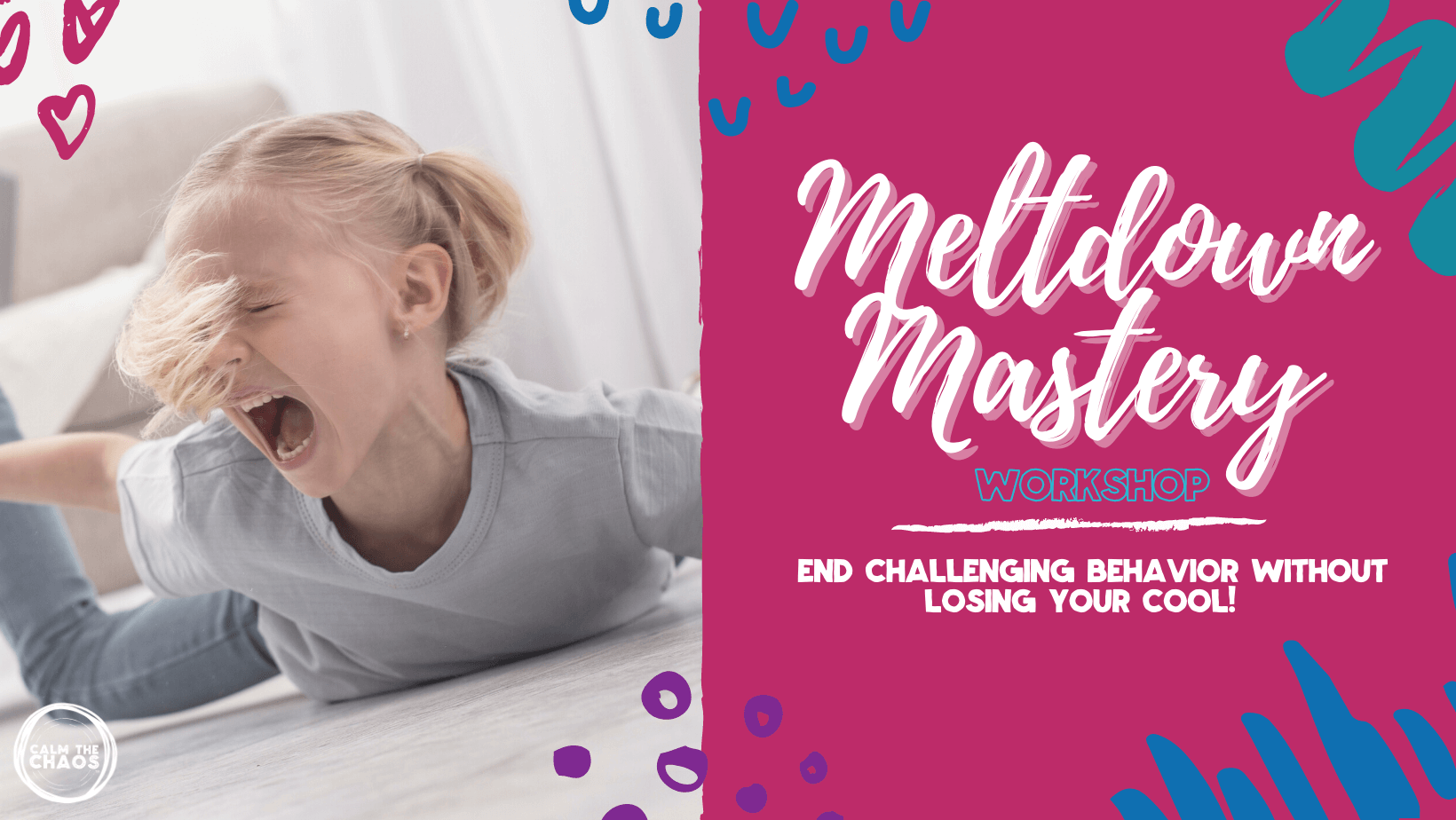Inside: Discover the science behind Mom Rage and learn how to overcome it. This comprehensive blog post explores the underlying causes and triggers of Mom Rage and provides practical tips and techniques for managing your emotional responses. Gain a deeper understanding of your parenting triggers and learn how to lean into curiosity instead of frustration. Empower yourself with the knowledge you need to become a calmer and more patient parent.
I remember the feeling all too well – I was in the kitchen cooking dinner and heard my kids arguing and whining.
It just became too much.
I suddenly felt my blood boil and the urge to yell at them take over.
Even though I knew I was frustrated, I thought I was in control – then that one small “no” pushed me over the edge. Then when it was all over, I’d feel awful for yelling and storming away.
I know I’m not the only one who has lost my temper with my kids!
What is mom rage and what causes it?
Many parents, especially moms, struggle with feeling angry, frustrated, and disconnected when our kids do something we perceive as disrespectful or disobedient. Whether it’s ignoring our requests or being mean to each other, it can leave us feeling triggered – and that anger sometimes boils over into rage (you’ve heard the term “mom rage” – this is that).
The more often parents experience this “mom rage,” the more vicious the cycle of guilt, shame, and hurt becomes. It’s important to understand and overcome mom rage because it not only damages your relationship with your kids, but it can also have a negative impact on children’s and parent’s mental health.

The good news?
You can change the way you perceive these things.
Your triggers are not in control of you.
While it might be hard, you just have to be willing to do the work to retrain your brain.
So if you’re working on becoming a calmer parent, read on!
How to recognize triggers for mom rage
Why do we react? Mom rage is often a result of a combination of factors that can include stress, exhaustion, personal issues, and the general pressure of being a parent.
It’s important to learn to recognize your own triggers so you can find a healthier way to handle those negative emotions.
So where do they come from?
Triggers tend to fall into three main categories:
Perception
Your perception and interpretation of events or situations. This is where your beliefs, attitudes, and past experiences can influence your response to present stimuli.
For example, if you grew up with the belief that children are meant to be “seen, not heard,” you probably interpret it as wildly disrespectful and offensive when a child interrupts an adult. You will likely feel triggered when your kiddos interrupt you.
Sensory
Overwhelm from sensory inputs (sound, smell, or touch) can be particularly relevant for individuals with sensory processing disorders (difficulty processing sensory information from their environment).
But we ALL have moments/days where these things feel like too much! You’ve probably heard the term “touched out” – this is how many parents describe feeling after extended periods of being the only source of physical affection and attention for their children. Or maybe you pull into the Target parking lot and see it’s COMPLETELY full… and immediately turn around.
Not even the dollar spot is worth the sensory overload and anxiety all of those people would cause!
Protection
This is a natural protective mechanism that helps you respond quickly to potentially dangerous situations. This can manifest as an emotional response, such as anger or anxiety, or a physical response, such as flight or fight.
Imagine the panic and anxiety you feel when your kid takes off to chase a ball across the street, or your child reaches up toward the hot stove. Your mind and body go straight to the protection instinct.
Most common triggers for parents that cause mom rage
I asked you to share your biggest parenting triggers in the Calm the Chaos community and the responses were overwhelming! Over 200 of you shared triggers such as:
- Disrespect and disobedience (Perception)
- Breaks in values (lying, dishonesty, meanness, etc.) (Perception, protection)
- Overstimulation: constant noise, touch, and chaos (Sensory, protection)
- Feeling ignored and unappreciated (Perception)
- Repetitive tasks (especially those “invisible” ones that no one notices… until they’re not done!) (Perception)
I’m sure you can relate!
What are the effects of mom rage on family dynamics?
Unchecked triggers inevitably lead to anger.
And what does that rage feel like – to you AND to your kids? Danger!
Anger sets off all of the alarms in our minds that tell us we’re not safe – something is wrong! In an attempt to keep you safe, your brain will go into an Automatic Stress Response:
- Fight,
- Flight,
- Freeze,
- Fawn.
What’s next?
- You’re yelling (fight),
- hiding in your room (flight),
- completely shutting down (freeze),
- or saying “it’s fine, I’m fine, everything’s fine” to keep the peace (fawn).
Mom rage can have a significant impact on the relationship between a parent and child, and even the dynamics of a family as a whole. This loss of control leads to guilt, shame, resentment, and disconnection. Cycles of negative feelings and behavior can be difficult to break.
Many of us grew up without the skills to navigate our anger in a healthy way. It’s become “normal” for us to find ourselves in the FFF response. We owe it to our kiddos to interrupt that cycle – to change the way we react to chaos.
Related: End Power Struggles Without Yelling
How to stop mom rage BEFORE it starts
Feeling triggered is natural. And you’re doing the work to understand the WHY behind your feelings around these triggers. You’re already making progress! You are not trapped in your anger, nor are you defined by your reaction. You can find healthier strategies to navigate your triggers, take control of your emotions, and feel more connected to your kids.
Try these techniques to change the way you react in the moment BEFORE mom rage hits.
Stop, Breathe, Anchor
Step One: STOP.
When you feel yourself getting angry… Stop. Just pause everything. No fixing, no arguing, no discussion. Acknowledge that you are about to boil over, and allow yourself time to reset before responding.
Step two: BREATHE.
Taking a deep breath will disarm your nervous system. Shut those alerts down and remind your body that you are safe.
Step three. ANCHOR.
Ground yourself with an anchor – a memory, affirmation, or a thought that calms you in the moment. This might be something like “My child needs me. They’re struggling.”, remembering that newborn smell, or a time they ran to hug you at pick up. Whatever flips that switch in your mind to help diffuse your anger.
Related: 25 Simple Ways to Remain Calm when Your Child Isn’t
Reframe your thoughts to Manage Mom Rage
Reframing your thoughts is a mental strategy for managing triggers. It involves swapping negative or unhelpful thoughts for positive or constructive ones.
To reframe your thoughts:
1. Identify the negative or unhelpful thought.
Why does she ALWAYS have to throw a fit
2. Challenge it and ask yourself if there is evidence to support it.
Really, always? No, of course not always.
3. Replace the thought with a more positive or constructive one.
She’s having a hard time right now.
Practice self-care
Self-care is absolutely vital. This means taking care of your physical and emotional well-being. Find activities that help you relax, feel supported, and energize you. Make it a habit to incorporate these things into your daily routine. It’s not sustainable to wait all day or week to get some “mom” time or “recharge.” I’m talking about creating ways to prioritize yourself and regularly engage with these things that give you boosts, even if it’s just a few minutes a few times a day.
Grounding techniques to calm mom rage
Grounding techniques are physical and mental exercises that help you stay present and calm when faced with a trigger.
- Focus on your senses, such as what you see, hear, feel, taste, or smell.
- Engage in a calming physical activity, such as stretching or deep breathing.
- Repeat a mantra or affirmation to yourself.

Seek support
Seeking support from others can be a powerful tool in managing triggers.
- Reach out to friends, family members, or a therapist.
- Join a support group or community of people who have faced similar experiences.
- Consider seeking professional help if needed.
How to improve family dynamics affected by mom rage
The goal here is to help you understand your triggers and the feelings behind them… and THEN identify practical solutions for managing your emotions. When you empower yourself with a plan to stop the mom rage cycle, you are ensuring you can stay connected with your kids and strengthen your relationships.
The beauty is that the healing begins as soon as you choose to empower yourself and find peace and happiness as a mom. You’ll be repairing the damage from your past reactions each time you show them your healthier reactions. You’re unlearning those old ways together, and your kids will gain skills in anger management, emotional intelligence, self-awareness, and communication alongside you!
The process may be simple, but not always easy, but with the right tools and support, you can overcome mom rage.
You got this!
Dayna






